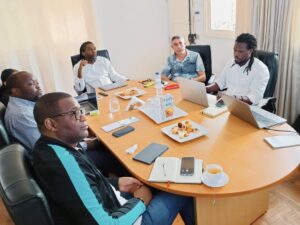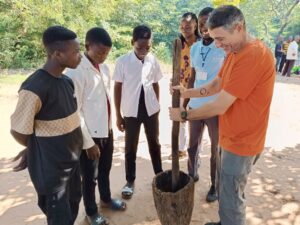In April, a new initiative took place to share activities and knowledge between two organisations working on egalitarian and co-responsible masculinities: the HOPEM Network (Homens pela Mudança) in Mozambique and the Association of Egalitarian Men of Catalonia (AHIGE Catalunya).

The HOPEM Network, a partner of Eyes of the world, is a Mozambican organisation that works for the promotion of gender equality, with a particular focus on changing attitudes and values in men and young people. For its part, AHIGE Catalonia develops projects to promote and support men’s change towards positions that are more favourable to equality and break with the traditional male model. Its main lines of intervention are training (talks, workshops), research (violence, sexuality, paternity), awareness-raising campaigns and the creation of spaces for reflection and care.
The objective was to exchange experiences and explore possible areas of collaboration between the two organisations. To this end, Paco Abril, AHIGE’s representative, travelled to Mozambique for two weeks to meet with the HOPEM team, share methodologies and identify common problems and solutions. He also attended several actions developed in Inhambane by HOPEM and Eyes of the world to prevent and combat gender violence and promote equal rights in access to eye health services: dialogue workshops with men and women, training sessions for community leaders, religious and traditional healers, and the Men in the Kitchen activity that promotes men’s participation in household chores and the distribution of responsibilities to raise awareness of the impact of gender stereotypes that make it difficult for women to access eye care services.

These collaborative projects enable improvements to be made in order to adapt equity strategies and programmes, offering men new ways of relating to the family based on co-responsibility and respect, and facilitating women’s access to eye health, especially cataract surgery.
The initiative was carried out with funding from the Catalan Agency for Development Cooperation (ACCD).